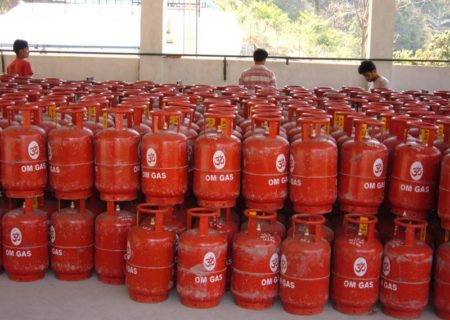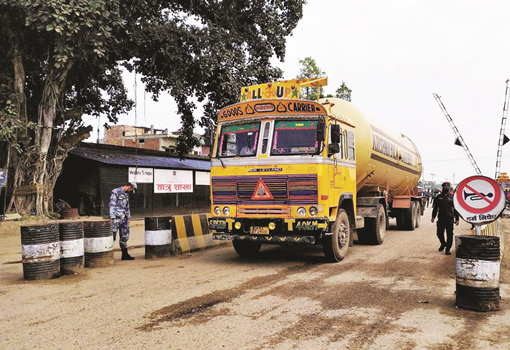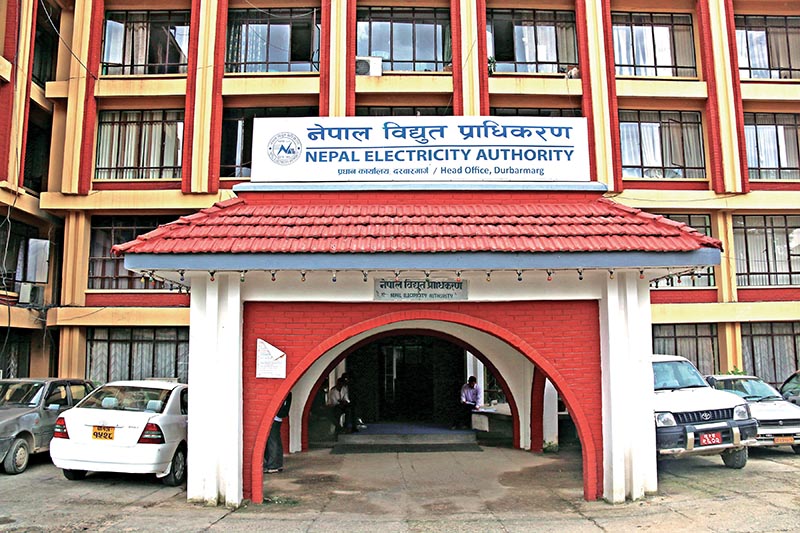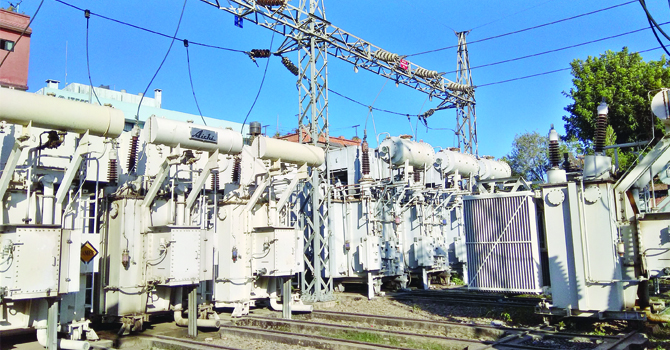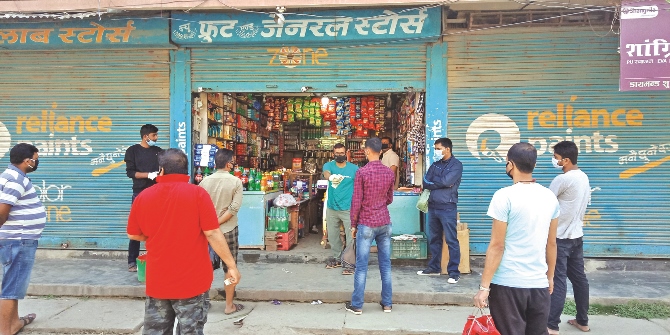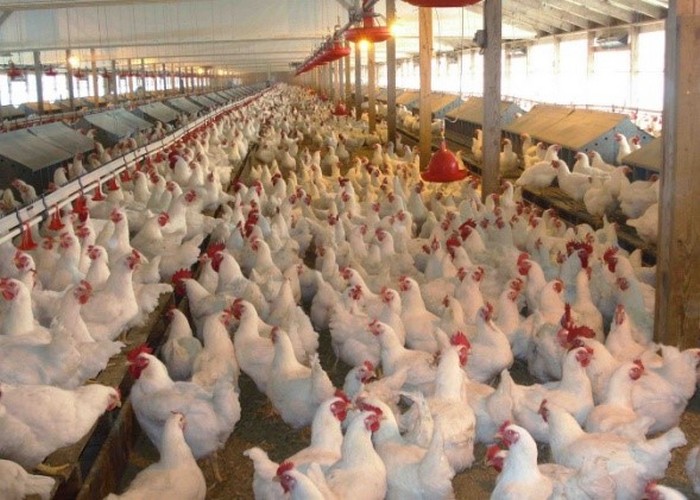NEA revamping power supply infrastructure in Valley

By Laxman Kafle
Kathmandu, Jan. 6: Nepal Electricity Authority (NEA) has taken initiative to complete the under construction projects as soon as possible for the improvement of power transmission and distribution system in the Kathmandu Valley.
The NEA has moved ahead with the aim of completing the projects under construction within a year to meet the growing demand of electricity in the Kathmandu Valley and to make the supply reliable and qualitative.
Projects such as construction of new substations, automation of existing substations, putting electric wires underground, addition and strengthening of new feeders and transformers are underway to make the power supply of Kathmandu Valley more reliable, qualitative and modern, according to the NEA.
The NEA has started construction of transmission and distribution system infrastructure in the Kathmandu Valley with short-term, medium-term and long-term plans to supply 2,000 MW of electricity.
A comprehensive plan to improve the transmission and distribution system has been forwarded by the government of Nepal, NEA, concessional loans from the Asian Development Bank (ADB) and Japan International Cooperation Agency (JICA).
NEA Managing Director Kul Man Ghising monitored the projects under construction on site and received information about the construction progress, ongoing problems and the work to be completed within a year.
MD Ghising has requested to expedite the construction of 220/132/33 kV substation under construction in Matatirtha of Kathmandu and 132/33/11 kV substation under construction in Phutung, Teku, Chobhar, Thimi and Changunarayan.
He urged the project management, contractors and consultants to complete the construction of the projects before the winter season next year.
"If the substations under construction are not completed and brought into operation before next winter, load shedding may occur due to lack of infrastructure to meet the demand for electricity, so let's complete the construction of such sensitive projects seriously," he said.
The work has been hampered by the Department of Roads refusing to allow putting electrical wires underground on the main road, obstruction by locals demanding route change and in some places locals not allowing placing transformers near their homes. We are coordinating with the concerned authorities to address the problems for completing works in time," he said.
A substation of 220/132/33 kV and 320 MVA capacity is under construction at Matatirtha to bring electricity from the Marshyangdi and Trishuli projects to the Kathmandu Valley for distribution.
Matatirtha substation, which is targeted to be completed by next September, is becoming a big hub for power supply in Kathmandu Valley.
A preliminary work has started to supply five 11 KV feeders underground to the main road to supply electricity to Thankot, Satungal, Gurjudhara and other areas from the substation.
After the operation of the feeder, the power supply of the area will be reliable and qualitative and the load work of Syuchatar and Teku substations will be reduced.
The construction of 132/11 kV substation at Chobhar in Kathmandu has been started after obstruction in construction of Khokna, Bungmati, Harisiddhi and Lamatar areas of Lalitpur under Thankot-Chapagaun-Bhaktapur 132 KV transmission line, which is considered important to improve power supply in Kathmandu Valley, the NEA said. The substation will have two power transformers with a capacity of 45 MVA.
The process of acquiring 12 ropanis of land required for construction of substation on the land of Himal Cement near the Dry Port is moving ahead. A 132 kV transmission line has been constructed from Matatirtha to Chobhar.
"If the Thankot-Chapagaun-Bhaktapur line had been completed, a ring of 132 kV transmission line would have been constructed in Kathmandu, Lalitpur and Bhaktapur. This would have increased the reliability of power supply and improved the voltage capacity. We have made a plan to take it to Lagankhel substation in Lalitpur," said MD Ghising. "It has been designed. We are strengthening the existing Lagankhel substation to 132 kV. Then in the coming days we will take the line from there to Chapagaun and Harisiddhi underground."
At present, electricity is being supplied from Lalitpur area from Suchatar-Patan-Baneshwor 66 kV line. This line is already 'overloaded'.
The NEA is constructing new substations of 132/11 kV and 132/11 kV in Phutung by strengthening the 66/11 kV substation in Kathmandu.
Two substations of 45/45 MVA capacity will be installed in both the substations. The electricity will be supplied to the area by tapping the Balaju-Chapali 132 kV double circuit transmission line at Phutung substation.
The main civil structures of Phutung substation are being constructed and the equipment has already arrived. After the operation of the substation, the power supply of Balaju area will be improved and the load of Balaju substation will be reduced.
Similarly, a 132/11 kV substation is under construction in Changunarayan of Bhaktapur while construction of Lapsiphedi 220/132/11 kV substation has not started due to local obstruction.
The Lapsiphedi substation is being constructed in the Kathmandu Valley to distribute the electricity of the hydropower projects constructed in the Tamakoshi and Sunkoshi river reservoir areas.
Recent News

Do not make expressions casting dout on election: EC
14 Apr, 2022
CM Bhatta says may New Year 2079 BS inspire positive thinking
14 Apr, 2022
Three new cases, 44 recoveries in 24 hours
14 Apr, 2022
689 climbers of 84 teams so far acquire permits for climbing various peaks this spring season
14 Apr, 2022
How the rising cost of living crisis is impacting Nepal
14 Apr, 2022
US military confirms an interstellar meteor collided with Earth
14 Apr, 2022
Valneva Covid vaccine approved for use in UK
14 Apr, 2022
Chair Prachanda highlights need of unity among Maoist, Communist forces
14 Apr, 2022
Ranbir Kapoor and Alia Bhatt: Bollywood toasts star couple on wedding
14 Apr, 2022
President Bhandari confers decorations (Photo Feature)
14 Apr, 2022



